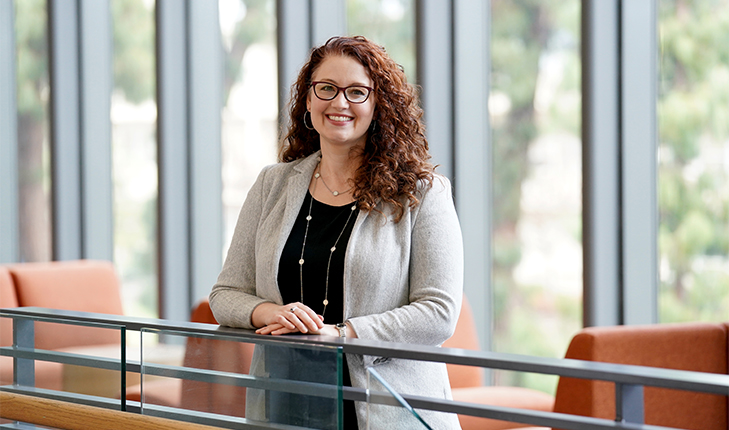Women who can’t afford enough diapers for their babies go to great lengths to stretch a single diaper. They track their child’s liquid intake, know when their child will urinate and learn exactly how much will fill up a diaper.
Low-income mothers ask people they know for diapers or diaper money. They go without food, barter their belongings and even resort to selling their blood plasma for money to buy diapers, according to research by Dr. Jennifer Randles, professor of sociology at Fresno State.
Diaper need — not being able to afford enough diapers to keep a child clean, dry and healthy — has long existed and worsened during the pandemic.
“Diaper banks are getting three to six times the requests for diapers. People are out of jobs. They have lost work hours. They can’t rely as much on the social networks they used to,” said Randles, who studies family inequality and very low-income parents. “Before the pandemic, one in three families with infants struggled with diaper need. We suspect even more families are struggling now.”
For her latest research, published in the current issue of the American Sociological Review, Randles interviewed 70 women who experienced diaper need before the pandemic to show the complexity of the issue and how innovative poor mothers are when it comes to making sure that their children are dry, comfortable and healthy. The problem is felt disproportionately by women of color and immigrants, said Randles.
Programs like WIC (the Special Supplemental Nutrition Program for Women, Infants, and Children) and SNAP (the Supplemental Nutrition Assistance Program), which provides food stamps, do not recognize diapers as a basic need like food. Diapers are categorized instead as an “unallowable expense” not covered by public programs, Randles said. Parents can use Temporary Assistance for Needy Families cash aid to buy diapers, but doing so would use up a large portion of the benefit that often goes to cover other needs.
Diaper banks, which distribute diapers to partner organizations, meet only about 4% of the need nationwide. Locally, many social service, religious, and philanthropic organizations throughout Fresno distribute diapers to families in need. Diaper banks are getting more requests, while those that rely heavily on volunteers and in-person services have lost capacity during the pandemic, Randles said.
Mothers have to do what Randles calls “diaper work” — the physical, emotional and cognitive labor involved in managing diaper need and related anxiety and stigma.
Randles interviewed a 32-year-old mother with one child who stretched a 120-count box of diapers over a month. She logged her child’s liquid intake to predict how many diapers the child would need, and sold food stamps, cans and bottles for extra money. When at home, she sometimes used paper towels with duct tape around her daughter’s waist to save the actual diapers for when they were out in public. The mother went without food, toilet paper and tampons to save diaper money.
“Providing those diapers means I’m a good mom who keeps them away from my trauma and our money problems. For diapers, I’m willing to do anything for my kids,” the mother said.
Other mothers worry about diapers more than food. “We get some food stamps, always have at least a can of something. You can’t really portion your diapers in the same way,” said a 30-year-old mother of five.
In 2019, Randles proposed and helped create a diaper pantry at the Student Cupboard on the Fresno State campus, knowing that student parents are likely experiencing this issue. “It’s an obvious type of student support that would help parents who have to decide between buying diapers or paying for a book or tuition,” Randles said.
Randles presents her research at conferences and shares the stories of the women she interviewed with policymakers through public forums hosted by organizations like the National Diaper Bank Network. She is now interviewing parents and caregivers who struggle with diaper need during the pandemic. Her work has also led her to a project with the nonprofit SupplyBank.Org that distributes basic material needs including diapers and wipes in all counties throughout California.
The research looks at cases where children have been diagnosed with dermatological conditions associated with wearing diapers too long.
“There are diaper rashes so severe that a baby has to be hospitalized,” Randles said. “This is a basic need of every child that governments should support. Families deserve this as a basic need, as an aspect of human dignity. The majority of these hospital visits were paid for by Medi-Cal. It’s a lot cheaper to pay for diapers.”





